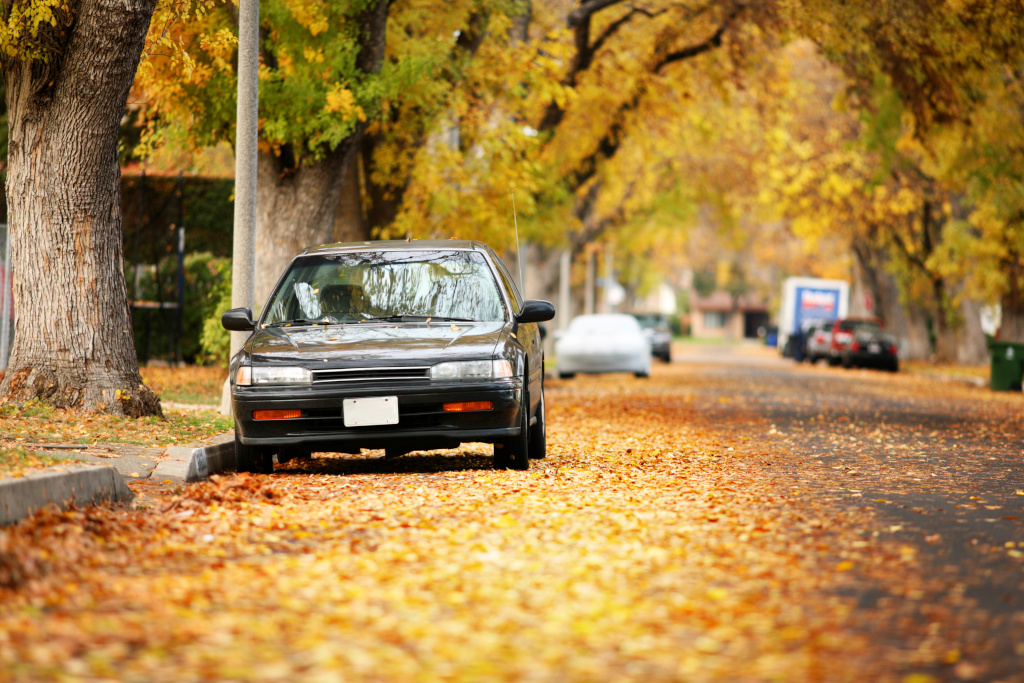Have you ever wondered if where you park your car impacts how much you pay for auto insurance? The short answer is that it depends.
Many different details can affect your monthly premiums. Insurance companies mainly care about factors that indicate some level of risk about how well you drive or how likely you are to file a claim. This includes personal details such as your:
Where you park your vehicle each night can influence your level of risk. However, it’s unlikely to be the deciding factor in whether you pay more or less for coverage. Ultimately, how much it impacts your rates will depend on your circumstances.
In this article, we’ll help you understand how where you park or store your car affects how much you pay for insurance. This includes both direct and indirect ways it influences driver premiums. We’ll also answer some frequently asked questions.
Some Insurers Care, While Others Don’t
Some insurance companies may ask where your vehicle is at night, whether it’s in a garage or on the street. And, if they do, as we said, it’s not likely to affect your monthly bill. While some providers could ask about parking or alter your rates because of it, your premium is more likely to increase because of indirect factors. In other words, it’s not that you parked in a particular location. The issue is that some areas are more prone to vehicle break-ins and car prowls. Storing your vehicle in a dangerous spot makes it far more likely that you’ll have to file a claim with your insurer.
Here are some common ways your parking choices can affect your premium:
You’ll Have to Pay a Deductible
Leaving your car out on the street, in front of your house, or a parking lot can put it at a higher risk of:
- Getting hit by another vehicle
- Getting stolen
- Break-ins
- Vandalism
- A tree falling on it
- Damage from severe weather, such as floods and hailstorms
Comprehensive covers most of the above (collision steps in if another car hits yours). But keep in mind that whenever you file a claim, you’ll have to pay your deductible.
More Claims Can Increase Rates
Claim history is one of many factors that can affect your auto premiums. One or two claims here and there for damage out of your control won’t move the needle much on your rates. But several claims in a short time could make you pay more for coverage. Keep this in the back of your head when you’re deciding where to park.
You Own a Collector Car
If you own a collector or classic vehicle, your insurer will typically require you to garage it or keep it in a safe place. Some may even require you to show proof that your car is in a garage or secure storage location.
Putting your collector automobile in an unsafe place (e.g., on the street in front of your house) could violate the terms of your policy, leading to either increased premiums or losing your coverage. Your valuable car will also be at a higher risk of losing its value or getting damaged if you don’t store it properly.
Where Your Neighbor Keeps Their Car
Your rates will, of course, not go up because your neighbor leaves his or her car on the street. But if you live in an area that experiences lots of vehicle crime or plenty of natural disasters, the number of claims in your area will rise. This will more than likely increase your auto rates, even if you never file any claims.
How to Keep Rates Down
If your rates have gone up, there are several great steps you can take to get them back to where you want:
- Keep your car in a safe place. If you’re able, this is a good way to avoid sometimes expensive or frustrating comprehensive claims. Safety and security may also help your case if your company considers car storage as a rate factor.
- Qualify for discounts. Some discounts, such as paperless billing and automatic payments are easy to get and can give you some nice savings. In terms of vehicle safety, insurance carriers offer savings via the anti-theft device or passive restraint discount.
- Bundle your policies. When your home or renters is bundled with auto under one company, you’ll get the best deal possible.
Frequently Asked Questions
Does location affect my auto premium?
Location has a huge affect on your rates. The most typical case is where you live, as this is one of the things that helps insurers figure out how to set premiums. As an example, people who live in a city with lots of claims will tend to pay more than those who live in a small rural community.
Where you park your car can be another example of how location can affect your rates. Some providers may ask where you keep your vehicle, then factor it into your costs. Most others may simply wait for you to file a claim before it impacts anything.
Is parking my car in my driveway better than on the street?
From a safety standpoint, parking in your driveway can be a little better than leaving leaving your vehicle on the street at night. However, depending on how it’s situated, your car still may be at risk of trees falling on it, as well as theft or vandalism. If you can, it’s ideal to keep your car in your garage.
What kinds of coverage can protect my car while it’s parked?
Comprehensive coverage takes care of most of the damage your vehicle could take while it’s parked. This includes:
- Falling objects, such as light poles, stop signs, and trees/branches
- Vandalism
- Break-ins
- Theft
- Animal damage
- Damage from natural disasters, storms, or bad weather
Most typically think of it for accidents that happen while driving because it’s, well, comprehensive. But it’s collision that protects your car if somebody hits it (even if you weren’t in it). This coverage pays for repairs from any incident where your car collides with another vehicle or object.
To learn more about both of the above coverages, we recommend checking out our article comparing the two. It quickly goes over the differences and similarities between both and offers price comparisons.


